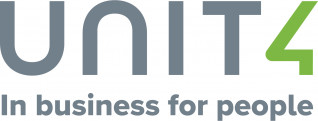One in four women and one in ten men say they have experienced some form of sexual harassment in the workplace. Of the reported cases of workplace sexual harassment, 55% were committed by co-workers; 39% of which involved a supervisor or manager. 8% of those who are sexually harassed at work report the harassment.
Recently there have been some changes made to Bill 168 – Violence in the Workplace, which gives employers’ statutory obligations. Bill 132, Sexual Violence and Harassment Action Plan Act, which received royal assent on March 8, 2016, requires all employers to have policies and programs including an investigation procedure. The essential changes brought by Bill 132 include: an employer is required to create a workplace harassment program; the program must include reporting and investigating tools for incidents of workplace harassment and violence; the employers must ensure that all complaints are investigated, and investigations are completed in a timely fashion and a new power to the Ministry of Labour (MOL) to order an independent workplace harassment investigation at the employer’s expense.
September 8, 2016, now looms for companies as the date for compliance with Bill 132. The amendments stand to change dramatically how workplace harassment is addressed in Ontario. The new OHSA obligations and expectations have been set and are accompanied by expanded government oversight. Harassment in the workplace is already a challenging issue that could engage multiple forums, with complaints possibly being advanced through a grievance, civil claim, complaint under the Human Rights Code, and, depending on the severity of the conduct, the criminal justice system.
Also, and particularly, the Bill amends the OHSA to require an employer to conduct an investigation of a workplace harassment complaint that is “appropriate in the circumstances.” The phrase “appropriate in the circumstances” is not defined. Further, the Ministry of Labour has not published any guidance material to communicate what factors will be considered by inspectors when determining whether an investigation meets this standard. Assuming that the inspectors could be evaluating investigations against expected best practices which would include such things as an impartial investigator, a collection of all relevant information, and procedural fairness to the alleged harasser could create challenges for employers as the appropriateness of an investigation may be evaluated in hindsight.
Consequences of flawed investigations would impair or prejudice the employer’s ability to establish just cause for termination or discipline. There would also be an issue of due diligence under the OHSA and Human Rights Code. Consequences would include aggravated, punitive or Code damages; penalties from the Ministry of Labour under the OHSA and reinstatement in unionized workplaces. Some of the critical mistakes some employers are making include: failing to act at all; taking the complaint seriously; failure to train investigators; inability to plan, improper or inadequate files; and retention of evidence.
Many situations happening in the workplace may prompt the necessity for an investigation, such as allegations of discrimination or harassment, workplace bullying, inappropriate use of the internet or social media, policy breaches, or statutory violations. Often, employers attempt to resolve minor issues informally through discussions with the employees involved. When the allegations are more serious, employers may depend on managers to conduct internal investigations. However, in many situations, having an organization deal directly with the problem is not necessarily the best approach – informal discussions may rapidly collapse, and basic investigative steps may be overlooked by inexperienced managers, making matters worse. A vital skill for any employer is identifying when a formal investigation by an external investigator is appropriate.
Note: meeting the requirements of Bill 132 could lead to mistakes that can be costly to your organization.
Be prepared. Be proactive.
Contact Monika Jensen, Principal Aviary Group at [email protected] or (905) 683-9953 if you need a complaint investigated or mediated.



.png)




